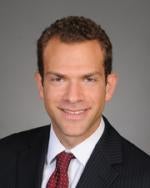The crime-fraud exception to the attorney-client privilege sometimes becomes an issue in government enforcement matters, including litigation under the False Claims Act (FCA). For example, when a government contractor seeks legal advice regarding its compliance with complex regulatory schemes that touch upon the FCA, under some circumstances, a relator or the government may assert that the contractor’s communications with counsel could be discoverable under the crime-fraud exception. This post discusses a recent ruling in the U.S. Court of Appeals for the First Circuit in a criminal fraud case, in which the court addressed the crime-fraud exception, and expanded a district court’s ruling that ostensibly privileged documents should be produced pursuant to the exception.
In U.S. v. Gorski, No. 14-1963, 2015 WL 8285086 (1st Cir. Dec. 9, 2015), the government brought criminal charges for wire fraud under 18 U.S.C. § 1343 alleging that the defendant, David Gorski, had defrauded the United States by falsely representing to federal agencies that a company he established, Legion Construction, was eligible for designation as a Service-Disabled Veteran Owned Small Business (SDVOSB). Under federal law, three percent of government contracts must be awarded to SDVOSB entities. Effective February 8, 2010, the government amended the regulatory criteria for SDVOSBs. Legion retained a law firm to shepherd the company through a corporate restructuring to comply with the 2010 amendments. However, while this restructuring did not occur until March 2010, it was dated “as of” February 1, 2010, just before the new regulations went into effect. Gorski also retained a personal attorney for legal advice relating to the 2010 restructuring and his rights and obligations relative to Legion despite not being the company’s majority shareholder. The court noted that “the new corporate documents [prepared by Legion’s counsel, and submitted to the government] were crafted so as to make it appear that they were signed before the date of the SBA [U.S. Small Business Administration] regulatory amendments, when they were not.”
The district court concluded that communications between Gorski and Legion’s law firm fell into the crime-fraud exception because the government had made a prima facie showing that (1) the defendant was engaged in criminal or fraudulent behavior when the communications took place (the indictment satisfied this prong); and (2) that the communications were intended by the client to conceal the crime or fraud (i.e., that Legion misrepresented its compliance with federal regulations). The district court concluded, however, that communications between Gorski and his personal attorney should not be produced because his personal attorney played no role in the submission of Gorski’s allegedly false statements to the government.
The First Circuit affirmed in part, but concluded that communications between Gorski and his personal attorney did fall into the crime-fraud exception despite the attorney’s lack of involvement in the submission to the government. The court found this fact “legally irrelevant,” because Gorski’s alleged intent with regard to both representations was “arguably the same”—to obtain advice about the restructuring, which in this case, allegedly meant perpetrating an ongoing fraud on the government.
Under Gorski, then, the mere allegation of a fraud may be sufficient to effect the destruction of the attorney-client privilege, as long as the communications in question were made at the time of an alleged fraud. Accordingly, the First Circuit’s decision sets problematic precedent for government contractors who rely on legal advice to comply with complex regulations that the government or relators may later assert are conditions of government payment. Based on this decision, relators may argue that any future allegation of fraud provides a basis for an attorney’s compliance advice to become discoverable. Nevertheless, the invocation of the crime-fraud exception is often a highly fact-intensive analysis, and defendants should argue that the Gorski decision should be cabined to its facts.



 />i
/>i

